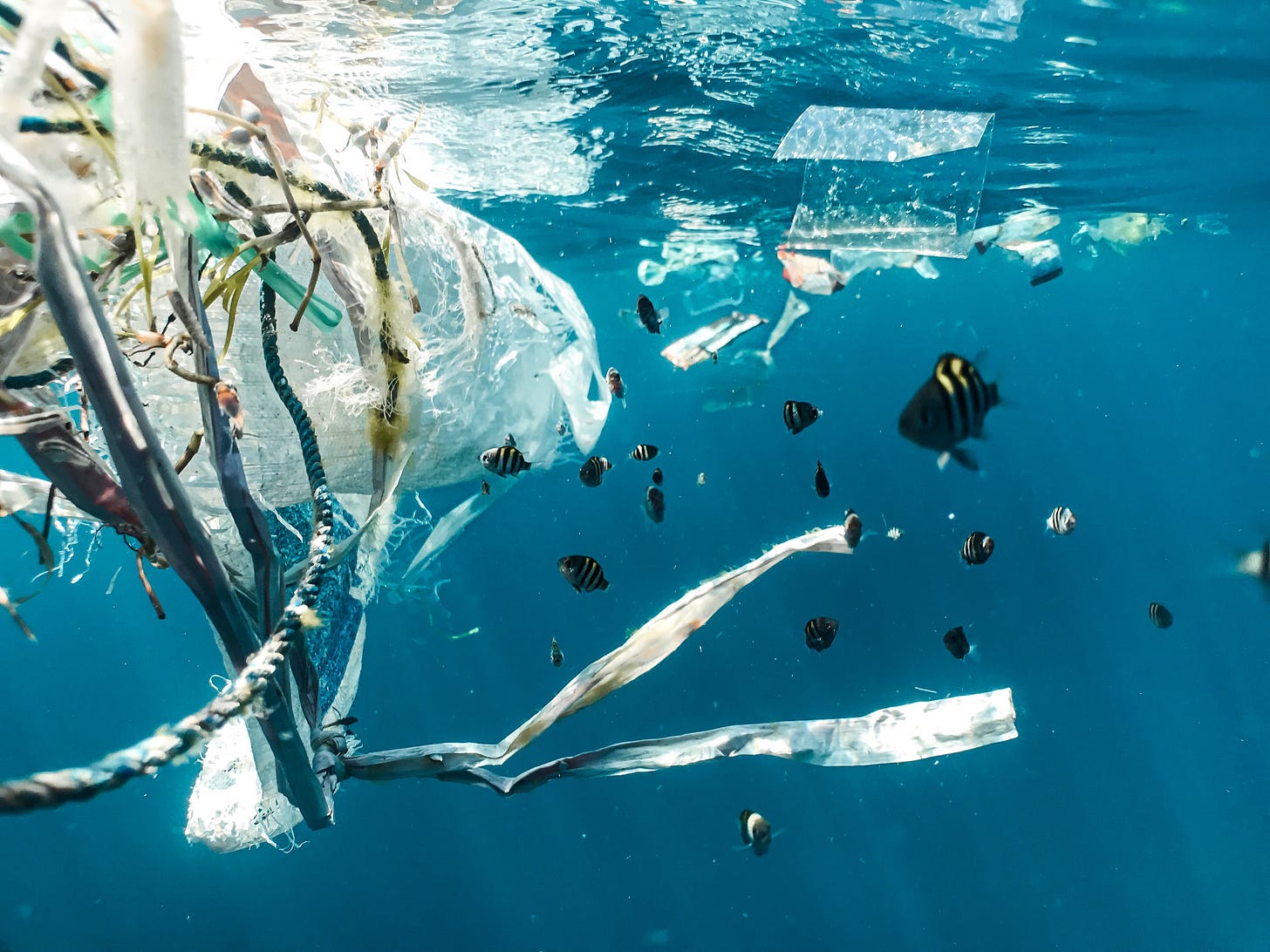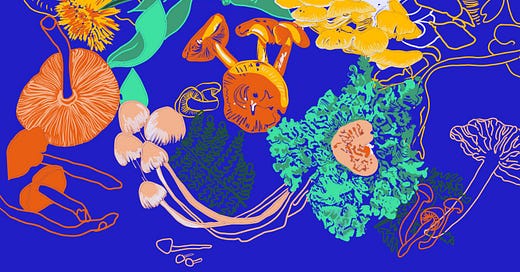How hungry fungi could mitigate the plastic waste crisis
You ingest a credit card’s worth of microplastics per year on average. Plastic is everywhere: from the rain falling on cities, to Arctic and Antarctic Ice, to the remotest corners of the ocean.
We can’t yet be sure about the extent of plastic’s impact on humans, but we do know it reduces growth and reproduction of zooplankton and rodents alike. It’s time to reduce the amount of plastic we produce, and to clean up the discarded plastic that floods our seas, before public health is impacted.
Luckily, the mycologists at the British Mycological Society (BMS) have some ideas. They promote mycology, the scientific study of fungi, and are looking into how fungi can be used to both replace and recycle plastic.

Bazooka-eating fungi
“The idea of growing fungi on plastic is not really that new,” Naresh Magan, Professor of Applied Mycology at Cranfield University, and a member of BMS, tells Ours to Save.
“Most man-made plastic components, from plastic car parts to electronic circuit boards, have to pass through British and ISO mould tests to show that they will not degrade in normal use.”
Professor Magan and his team used to conduct these tests. At one point they were asked by the Ministry of Defence to mould-test a plastic shoulder-mounted bazooka. “It was quite strange for us,” he said.

“So there are moulds, which are known to be able to produce enzymes that degrade plastic components. The question is what environmental conditions you need to accelerate that.”
Accelerating that process could be the key to recycling plastic with fungi at scale. Will we see fungi-based plastic recycling at a large scale in the next few years?
The process involves composting plastic in a highly controlled environment, where fungi are introduced to plastic waste at a temperature of around 30 degrees Celsius in high humidity for long periods.
As Dr Angel Medina-Vaya, Lecturer in Food Mycology at Cranfield University, explains:
“So far it looks quite expensive; every time you have to warm things up, it's very expensive and it’ll need a constant temperature and humidity so a high energy input at the beginning.”
“It wouldn't be plausible or economic enough as it stands”, he continues. “I don't see it happening in the next five years.”
Recycling plastic with fungi en masse looks promising – but unlikely for the moment. What about fungi-based plastic substitutes?
Plastic substitutes
There are already companies producing fungi-based plastic packaging alternatives, proving its feasibility. UK-based Magical Mushroom Company supplies compostable polystyrene alternatives, used by the likes of LUSH, the Body Shop and Sainsbury’s.
Dr Medina-Vaya outlines the research he is doing in collaboration with The Magical Mushroom Company.
“I’ve been involved in projects to create a biomaterial made with fungi to substitute polystyrene packaging using the waste from food production. It’s a circular economy thing; with the waste from crops, we can produce a material that substitutes plastic.”
“We break up the material and mix it with water and flour, then introduce the fungus spores and mix it thoroughly, before putting it in moulds at the right temperature. The fungus grows, eats all the waste and becomes very hard. To stop to process, we heat the material to kill the fungus, leaving a material that is very strong and not very flexible, just like polystyrene.”
“And it’s completely compostable. You can just throw it in your garden and in six weeks it’ll disappear.”
The process employed by the Magical Mushroom Company is licensed by US-based Ecovative Design. “However, the type of waste they produce in America is not the type of waste we produce in the UK,” he added. “So Cranfield is doing research on how to use the main streams of waste we have in the UK.”
A mycological future?
Whilst these are very promising developments, both Professor Magan and Dr Medina-Vaya recognise their success is underpinned by economics. “It’s not easy to compete with plastics,” says Professor Magan.
Plastic recycling can be made more economically viable if valuable materials can be harvested from the fungi used in the process. This is an ongoing area of research.
As for plastic substitutes, Dr Medina-Vaya says, “We’re investigating using waste streams in the UK as that will make the packaging production process very, very cheap.”
Mycological solutions may well be fertile grounds for a plastic-free world, but both academics stress the absolute need for more funding and research.
Joey Grostern is a regular Ours to Save contributor. Follow him on Twitter.




